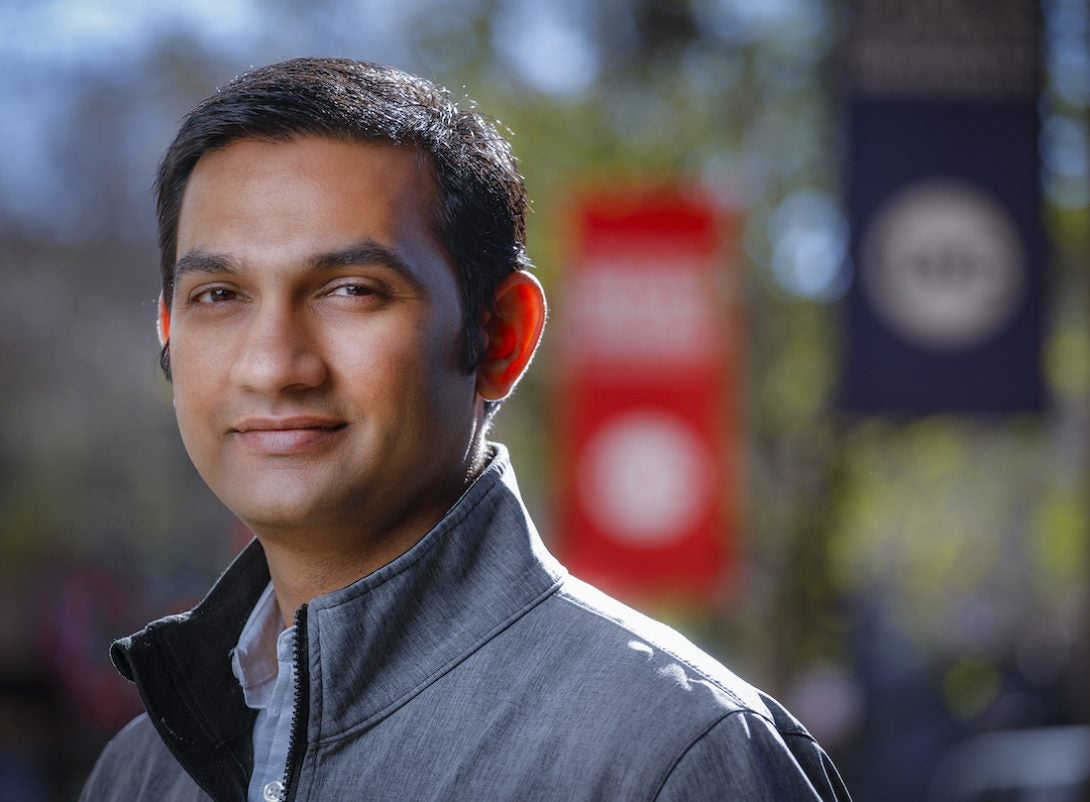Trivedi receives NSF CAREER grant extension for work into efficient intelligent computing
Trivedi receives NSF CAREER grant extension for work into efficient intelligent computing

Associate Professor Amit R. Trivedi received funding from the National Science Foundation to continue researching tiny autonomous drones and the onboard sensors that allow them to explore their space. The original grant, Robust and Ultra-low-power Spatial Intelligence, was initially funded in 2021.
For this extension, Trivedi is investigating implementing a compute-in-memory system, eliminating the need to transfer data between the processor and memory, which will reduce the power usage of the system.
The drones must be small enough to work unobtrusively and navigate small spaces. Because a small drone can only carry a tiny battery, minimizing the power consumption during processing is critical.
Trivedi has been working with South Korean researchers to develop new transistors that will allow for this low power-consumption on-board processing, by using reasoning-based algorithms. Earlier this year, their work was published in Nature magazine.
The U.S. CHIPS and Science Act is aimed at boosting domestic research and manufacturing of semiconductors in the United States and encourages collaborations around the world. In 2022, the U.S., Japan, South Korea, and Taiwan formed a consultative entity called the Fab 4 alliance, aimed at coordination and cooperation among these governments and chipmakers across the whole cycle of the semiconductor supply chain.
Trivedi’s collaboration with South Korea is an example of this cooperation. Trivedi’s South Korean counterparts are developing and refining the transistors, and Trivedi is improving the reasoning-based algorithms used by the transistors.
While deep-learning algorithms are prevalent in a variety of applications, such as language models, image recognition, and autonomous cars, they utilize low-level intelligence.
“These models are working with complete information, they have been well-trained,” Trivedi said. “If you think about the intelligence of humans or other beings, we work with incomplete information – even if we are not given the entire context right away, we can make good decisions.”
Models that allow reasoning and can self-criticize consume far more power and are difficult to implement in tiny edge devices. Using transistors that allow for on-board processing and consume small amounts of power is critical to improving these drones, which could be used for a variety of applications. Trivedi envisions autonomous flying cameras that can locate infected plants in agricultural fields or map hard to access areas and self-flying gas sensors that can identify leaks in a gas plant.
“Our joint work on these transistors will allow us to look further into this integration of multiple modes of intelligence to make the intelligence computing a lot more efficient,” Trivedi said.